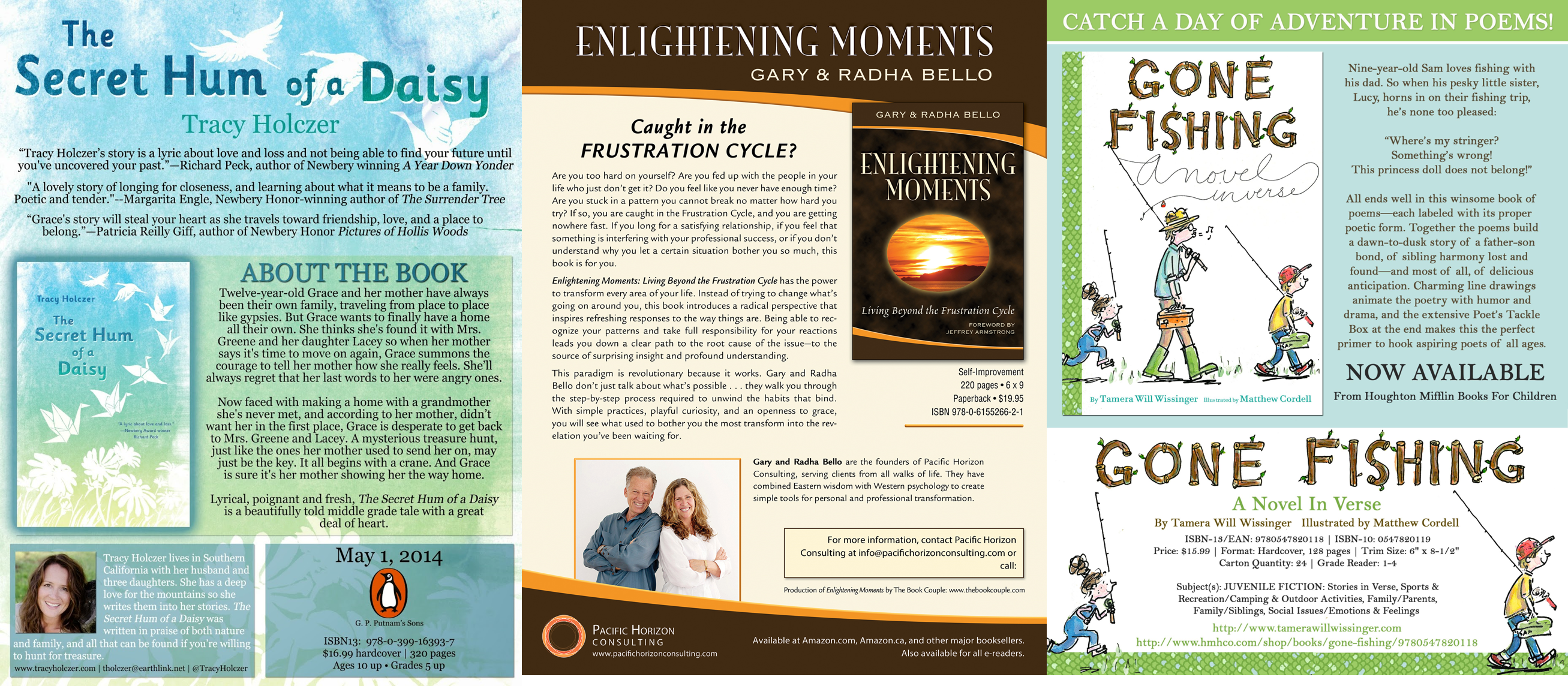 Getting Interviews & Making Waves
Getting Interviews & Making Waves
A well-placed piece of press can help you reach a wider audience. But how do authors get interviews? Well, it’s not by sitting around and waiting for the media to come knocking.
The best way to expand your reach is to find media outlets in markets you want to target and send them a press release. Press releases inform editors and reporters about items that might be of interest to their readers.
Press Release: Any information sent to the press and/or media outlets is considered a press release.
Media outlets get a lot of press releases, so here are some tips to make yours stand out. And you can breathe easier knowing the resulting interviews will flow smoothly because you’ve prepared everything beforehand.
Press Release
Newsrooms across the country are short staffed and many of the reporters underpaid. The best way to get good press is to make the reporter’s job easier. This is accomplished by honing your press release and making it as succinct as possible.
When crafting press releases include the essentials: who, what, where, when, why, and how. Make yourself newsworthy by including information relevant to their readership (e.g., Wright is a graduate of Priest River High.) When possible, consider tying your project to something trending in the news or on social media in a way that feels authentic (e.g., One of the themes in Wright’s new book is consent. #MeToo.) Wrap the release up with an offer to do an interview and provide dates and times that you are available.
In the release, be sure to include links to your press kit, the location of your video/trailer, and the link to your author website. Do not send anything as an email attachment. Many email clients block unknown emails with attachments, which means your press release will never be read. Instead put all the information in a sharable Google Drive folder and provide the link in the body of the email.
A press release should be short—no more than 3 paragraphs. They are teasers that can be quickly scanned by editors and reporters to decide if it’s something might of interest to their outlet/organization. If the release garners their interest, they will check the press kit for more details.
Send press releases mid-morning on weekdays so they won’t get buried in the reporter’s inbox. Sometimes a more newsworthy event takes precedence. (e.g. the Queen dies, Brian Kohberger stabs 4 people, Russia declares war on Ukraine.) If this happens the week you send out press releases, follow-up a week later but avoid being pushy. And remember, there’s no guarantee your story will get covered.
Press Kit
A press kit or media kit should be included with all press releases. A press kit contains additional information about the author and the book, along with images approved for publication.
Press Kit: a set of promotional materials that are distributed to media outlets for the purpose of providing information about a person, company, or organization.
Below is a list of items every author should include in their press kit:
- Author Bio—You never know how much space an outlet will give you so this document will actually contain 3 bios of different lengths. You’ll want one that’s approx. 50 words, one that’s about 100 words, and one that’s 250-300 words.
- Author Headshot—High resolution photos are necessary for publication. Providing them with the press release makes the reporter’s job easier which makes them more likely to cover your story. Include the same photo with two layouts, vertical & horizontal, so they can choose the one that best fits their page pagination.
- Prior publications—think of this as your author resume and include complete citations for all prior work.
- Frequently Asked Questions—Every author needs a FAQ page. Haven’t been asked any questions? Don’t worry, I’ve provided examples below.
- Book Info Sheet—Sometimes called a sell sheet, this is an advertisement for your book. It will include the front cover & blurb, author headshot & bio, awards, reviews, and publication details, such as: publication date, genres, page count, price, ISBNs, publisher/imprint, and distribution channels. (See examples below.)
- Book Images—Include three high-resolution images for media outlets to choose from: ebook cover, audiobook cover (square), and a 3D promotional image of the book.
- Logo/Trademark (if applicable)—If you’ve founded your own publishing house or registered a trademark, include the image in your press kit.
Sell Sheet Examples:

Author FAQ
I get it, you haven’t done a bunch of interviews, so you don’t have a list of frequently asked questions. However, the internet is filled with lists of questions authors are frequently asked. Google them and find several that are appropriate to your work.
When writing your FAQs, bear in mind that the answers need to be short—no more than a couple sentences. This is because column space for print media is at a premium and much of your interview will consist of reporters cutting and pasting from your FAQ.
Your FAQ sheet will grow overtime—mine currently covers 21 questions. Below are 10 common interview questions that you can adapt for your own FAQ sheet.
- Why did you write this book?
- What is the book about?
- What is the bigger message you’re trying to get across?
- Does the title have any special significance?
- What was the hardest part for you to write?
- How has the book been received?
- Do you have any advice for people struggling with what your main character has gone through?
- Tell me about your current WIP?
- What’s your favorite book?
- Which authors inspire you?
Interview Prep
Do not try to memorize your answers. Doing so will just leave you flustered in the moment. Instead, pick a few questions from your list and look at the answers. Write the question on a 3X5 card and break answers into bullet points. This will make it easier for you to remember your answers while doing phone interviews or creating radio soundbites.
The goal is to be able to speak fluently, so have friends help you practice. Give them a list of common questions and refer to your 3X5 cards as you answer. Ask your smartest friends for feedback. Do the answers sound like something you’d hear in a TV or radio interview? Are they too long or dull? If something doesn’t sound right, tweak your answers. It won’t take long before you no longer need the practice cards and can confidently manage an interview!
Just to confirm – am I supposed to write this in the third person? I would feel odd sending a text about myself from third person perspective.
Yes, write in 3rd person. I know if feels weird, but you need to put your reporter hat on and write like you want it to appear in the newspaper. With all the cuts to print media these days, it’s not uncommon for editors and reporters to just cut and paste directly from your press release.
Heya! I was wondering, but how do you find the email addresses of the newsrooms that you send your press release too. How I can I specifically find newsrooms that would be a good match for my book?
The email addresses/contact information will be listed on the newspaper/magazine/journal’s website.
As for finding one that’s a good fit, you’d need to do a lot of reading. Check out the publication and see if they publish things about books like yours or articles that would be of interest to your readers.